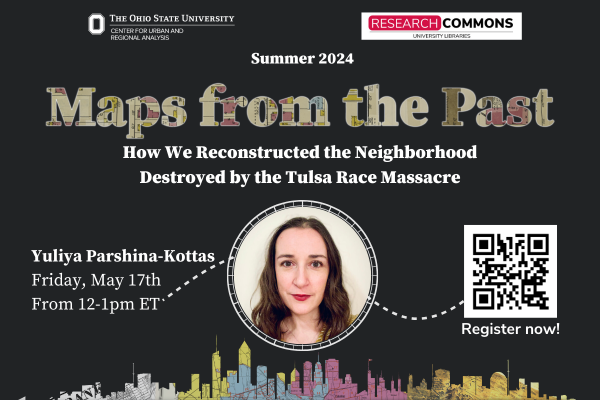
To commemorate the centennial of the 1921 Tulsa race massacre, graphics editors at The New York Times analyzed archival maps, city directories, census data, newspaper clippings and survivor accounts to create a 3D model of Greenwood — a prosperous Black neighborhood in Tulsa, Oklahoma, destroyed by a violent white mob. The 3D model served as an immersive stage to tell stories of the residents and businesses of Black Wall Street.
Yuliya Parshina-Kottas will share the reporting, design and production process of this monumental effort.
Yuliya Parshina-Kottas is a visual journalist, information designer and motion/3D artist with 18 years of experience telling stories in digital and physical spaces. For over nine years Yuliya worked as a graphics and multimedia editor at The New York Times, where she reported, developed, designed and produced visual stories.
Yuliya teaches graduate and undergraduate courses and workshops in visual journalism, motion graphics and animation, and she is joining the full-time faculty of NYU Tisch’s Interactive Telecommunications Program as Assistant Professor this fall.
Before joining The Times, Yuliya created interactive experiences, spatial installations and linear animations for museums, ad campaigns and animated children’s series. Her personal art practice uses animation and illustration to explore themes of folklore and womanhood.
This summer, CURA and The Research Commons are hosting a series of presentations featuring scholars engaged in research with historical maps to illuminate the links between urban challenges and impacts old and new.
This event is approved for 1 AICP CM credit. To claim your CM credits, log into your My APA account on the APA website and enter the event into your online CM event log.

This presentation will also touch upon GIS&T Body of Knowledge topics and counts towards the education portion of the GISP portfolio.
